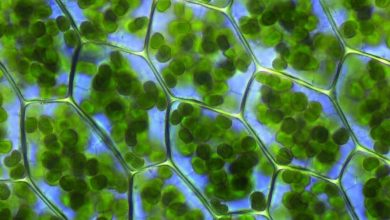Interstitial Cystitis – Fighting the Unknown

| Sounds like an infection, feels like an infection, but it’s not an infection.
In January 2020, a patient came to SFIM with a diagnosis of interstitial cystitis. After 14 months of persistent pain and an ever-changing medication list, she was ready to try something new. |
You know this feeling, when you buy a red car, you see red cars everywhere. After meeting this patient and delving deep into her case, I learned even more about the complexities of IC and other pelvic inflammatory diseases. As that happened, more patients like her started contacting the office and I started to see how common their story actually was. I have to report that after 6 months of acupuncture and dry needling in addition to natural supplements, the difference in pain levels and their frequency of relapses has decreased immensely.
Signs, Symptoms, and Conventional Medical Approach
The bladder is the organ in the human body that stores urine. When the bladder is full, this signals your brain that it is time to urinate by communicating through the pelvic nerves. This is what creates the urge to urinate. With interstitial cystitis, the bladder system is confusing. The person feels the need to urinate more often and with smaller amounts of urine than most people.
The signs and symptoms of interstitial cystitis vary from person to person. Also, if you have interstitial cystitis, your symptoms can vary over time and flare up periodically in response to common triggers such as menstruation, long periods of sitting, stress, exercise, and sexual activity.
Signs and symptoms of interstitial cystitis can include:
- Pelvic or perineum pain (chronic or acute)
- A persistent, urgent need to urinate
- Frequent urination, often in small amounts, during the day and night (sometimes up to 60 times a day)
- Pain or discomfort as the bladder fills and relief after urinating.
- Painful intercourse.
It sounds similar to a urinary tract infection, but there is usually no infection. However, symptoms can get worse if a person with interstitial cystitis gets a urinary tract infection.
The exact cause of interstitial cystitis is unknown, but many factors are likely to contribute. For example, People with interstitial cystitis can also have a defect in the protective lining (epithelium) of the bladder. A leak in the epithelium can cause toxic substances in the urine to irritate your bladder wall. Others possible, but not proven Factors include an autoimmune reaction, heredity, infection, or allergy.
These Factors are linked to a higher risk of interstitial cystitis::
- Up to 90% of people with IC are women. Symptoms in men look like interstitial cystitis, but they are usually associated with inflammation of the prostate (prostatitis).
- Skin and hair color. To have light skin and red hair has been associated with a higher risk of interstitial cystitis.
- Most of the people with interstitial cystitis are diagnosed during their 30s or older.
- Existing chronic pain disorder. Interstitial cystitis can be linked to other chronic pain disorders such as irritable bowel syndrome or fibromyalgia.
Interstitial cystitis can lead to a number of complicationsincluding:
- Reduced bladder capacity. Interstitial cystitis can cause the wall of the bladder to stiffen, making your bladder less able to hold urine.
- Lower quality of life. Frequent urination and pain can interfere with social activities, work, and other activities of daily living.
- Problems with sexual intimacy. Frequent urination and pain can strain your personal relationships, and sexual intimacy can suffer.
- Emotional problems. The chronic pain and sleep disorders associated with interstitial cystitis can cause emotional stress and lead to depression.
While there is no real cure for IC in conventional medicineSymptoms tend to subside temporarily over time. Conventional treatment is mainly used to relieve symptoms and may include physical therapy, NSAIDs, antidepressants, and certain pharmaceutical products that do Coat the bladder epithelium to help with inflammation. Surgery is usually not an option.
According to Chinese medicine …
According to Chinese medicine, not all people who develop IC get the disease from the same causes. Acupuncture and traditional Chinese medicine correct imbalances in the body and reset the body to make it healthy again. I like to think of this as pressing the reset button. In the treatment of interstitial cystitis, acupuncture can reduce the pain, frequency, and discomfort associated with urination, as well as the stress associated with it.
.
Common imbalances in interstitial cystitis are Qi weakness, Qi stagnation (lack of Qi circulation) and heat. It is not uncommon for people to have more than one of these imbalances, and it is important to identify which imbalance is specific to your situation in order to better control the course of treatment. For this reason, it is important on the first visit to take a detailed history of your symptoms to get a clear picture of what you are experiencing.
Imbalances correlate with certain symptoms. For example, people with a weak qi or lack of energy are often tired and have digestive problems. People with qi weakness may urinate frequently, urinate at night, and have a feeling of fullness in the abdomen. Qi stagnation is a lack of energy circulation and can cause pain, gas, and muscle cramps. Heat in the body can lead to dryness, burning urination, abnormal sweating, stiff joints, and headaches.
Other relevant symptoms in developing a specific and effective course of treatment for IC include muscle tension in the pelvis, back, abdomen, and legs. This is where dry needling can be so effective. Trigger points in the gluteus maximus and medius, in the adductor magnus and in the illopsoas are taken into account as they can cause pain in the pelvic floor. Another common symptom of IC is sacroiliac joint dysfunction, which can also be an important factor in treatment.




